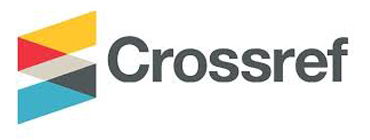THE EFFECT OF THE ONLINE-BASED M-APOS MODEL ON MATHEMATICS PROBLEM-SOLVING ABILITY REVIEWED FROM STUDENT'S SELF-ESTEEM
Abstract
Full Text:
PDFReferences
A. Jariah, N. A., Zulkardi, Z., & Hartono, Y. (2018). Penerapan Self-Esteem Dalam Pembelajaran Matematika Menggunakan Pendekatan Open-Ended. HISTOGRAM: Jurnal Pendidikan Matematika, 1(2), 105. https://doi.org/10.31100/histogram.v1i2.28
Dhawan, S. (2020). Online Learning: A Panacea in the Time of COVID-19 Crisis. Journal of Educational Technology Systems, 49(1), 5–22. https://doi.org/10.1177/0047239520934018
Eliza, W., Suyono, & Hakim, L. EL. (2018). Pengaruh Pendekatan M-APOS Terhadap Kemampuan Penalaran Matematis Siswa SMP Negeri di Kota Tangerang. Jurnal Riset Pendidikan Matematika Jakarta, 1(1), 31–38.
Fatah, A., Suryadi, D., Sabandar, J., & Turmudi. (2016). Open-ended approach: An effort in cultivating students’ mathematical creative thinking ability and self-esteem in mathematics. Journal on Mathematics Education, 7(1), 9–18. https://doi.org/10.22342/jme.7.1.2813.9-18
Happy, N., & Widjajanti, D. B. (2014). Keefektifan Pbl Ditinjau Dari Kemampuan Berpikir Kritis Dan Kreatif Matematis, Serta Self-Esteem Siswa Smp. Jurnal Riset Pendidikan Matematika, 1(1), 48. https://doi.org/10.21831/jrpm.v1i1.2663
Hartati, S. J. (2014). Design of Learning Model of Logic and Algorithms Based on APOS Theory. International Journal of Evaluation and Research in Education (IJERE), 3(2), 109–118. https://doi.org/10.11591/ijere.v3i2.5743
Irwan, -, Silfia, R., & Irwan, -. (2018). Validity of Mathematics Learning Devices Based on Quantum Teaching to Improve The Problem Solving Ability of Students Class XI Vocational School. 285(Icm2e), 196–199. https://doi.org/10.2991/icm2e-18.2018.63
Lahinda, Y., & Jailani, J. (2015). Analisis Proses Pemecahan Masalah Matematika Siswa Sekolah Menengah Pertama. Jurnal Riset Pendidikan Matematika, 2(1), 148. https://doi.org/10.21831/jrpm.v2i1.7157
Lassoued, Z., Alhendawi, M., & Bashitialshaaer, R. (2020). education sciences An Exploratory Study of the Obstacles for Achieving Quality in Distance Learning during the. Education Sciences, 10, 1–13.
Légeron, P. (1987). Self esteem. Soins. Psychiatrie, 13(79), 25–31.
Mandasari, S., Arnawa, I. M., & Atmazaki, -. (2018). Development of
Mathematics Lesson Equipment Based On M-APOS Model to Improve Creative Thinking Skill on Grade X Students at Senior High School. 285(Icm2e), 229–235. https://doi.org/10.2991/icm2e-18.2018.53
Mendadak, T., Besser, A., Flett, G. L., Zeigler-hill, V., Flett, G. L., & Zeigler-hill,
V. (2020). Beasiswa Pengajaran dan Pembelajaran dalam Psikologi Beradaptasi dengan Transisi Mendadak ke Pembelajaran Online.
Nella Kresma, E. (2014). Perbandingan Pembelajaran Konvensional Dan Pembelajaran Berbasis Masalah Terhadap Titik Jenuh Siswa Maupun Hasil Belajar Siswa Dalam Pembelajaran Matematika. Educatio Vitae, 1, 152–164.
Netriwati. (2016). Analisis Kemampuan Pemecahan Masalah Matetamatis Berdasarkan Teori Polya Ditinjau dari Pengetahuan Awal Mahasiswa IAIN Raden Intan Lampung. Jurnal Pendidikan Matematika, 7(9), 181–190.
Puspita Dewi, E. M. (2016). Jurnal Ilmiah Psikologi. Inquiry, 7(1), 231143.
Refnadi, R. (2018). Konsep self-esteem serta implikasinya pada siswa. Jurnal
EDUCATIO: Jurnal Pendidikan Indonesia, 4(1), 16.
https://doi.org/10.29210/120182133
Rizka A, Pinta Deniyanti Sampoerno, Pinta Deniyanti Sampoerno, & Aris Hadiyan Wijaksana. (2020). Pengaruh Model Pembelajaran M-APOS Berbantuan Portal Rumah Belajar terhadap Kemampuan Pemahaman Konsep Matematis Siswa di SMKN 26 Jakarta. Jurnal Riset Pembelajaran Matematika Sekolah, 4(1), 15–19. https://doi.org/10.21009/jrpms.041.03
Utami, R. W., & Wutsqa, D. U. (2017). Analisis Kemampuan Pemecahan Masalah Matematika dan Self-Efficacy Siswa SMP Negeri di Kabupaten Ciamis An Analysis of Mathematics Problem-solving Ability and Self- Efficacy Students of Junior High School in Ciamis Regency. 4(2), 166–175.
DOI: http://dx.doi.org/10.30829/tar.v29i1.1266
Refbacks
- There are currently no refbacks.

Jurnal Tarbiyah by UIN Sumatera Utara Medan is licensed under a Creative Commons Attribution-NonCommercial-ShareAlike 4.0 International License.
Based on a work at http://jurnaltarbiyah.uinsu.ac.id/index.php/tarbiyah.
Permissions beyond the scope of this license may be available at http://jurnaltarbiyah.uinsu.ac.id/index.php/tarbiyah/about/submissions#copyrightNotice.
















